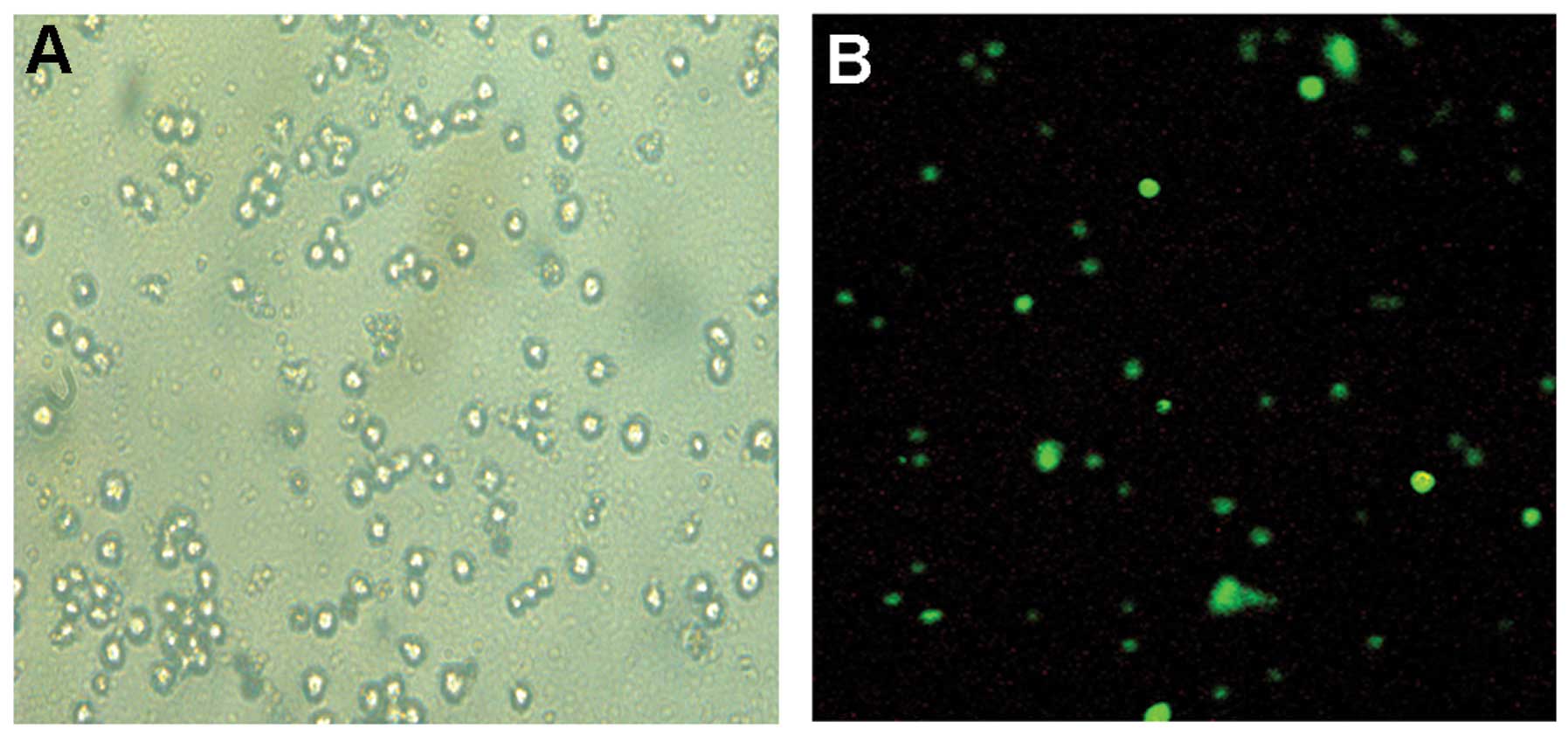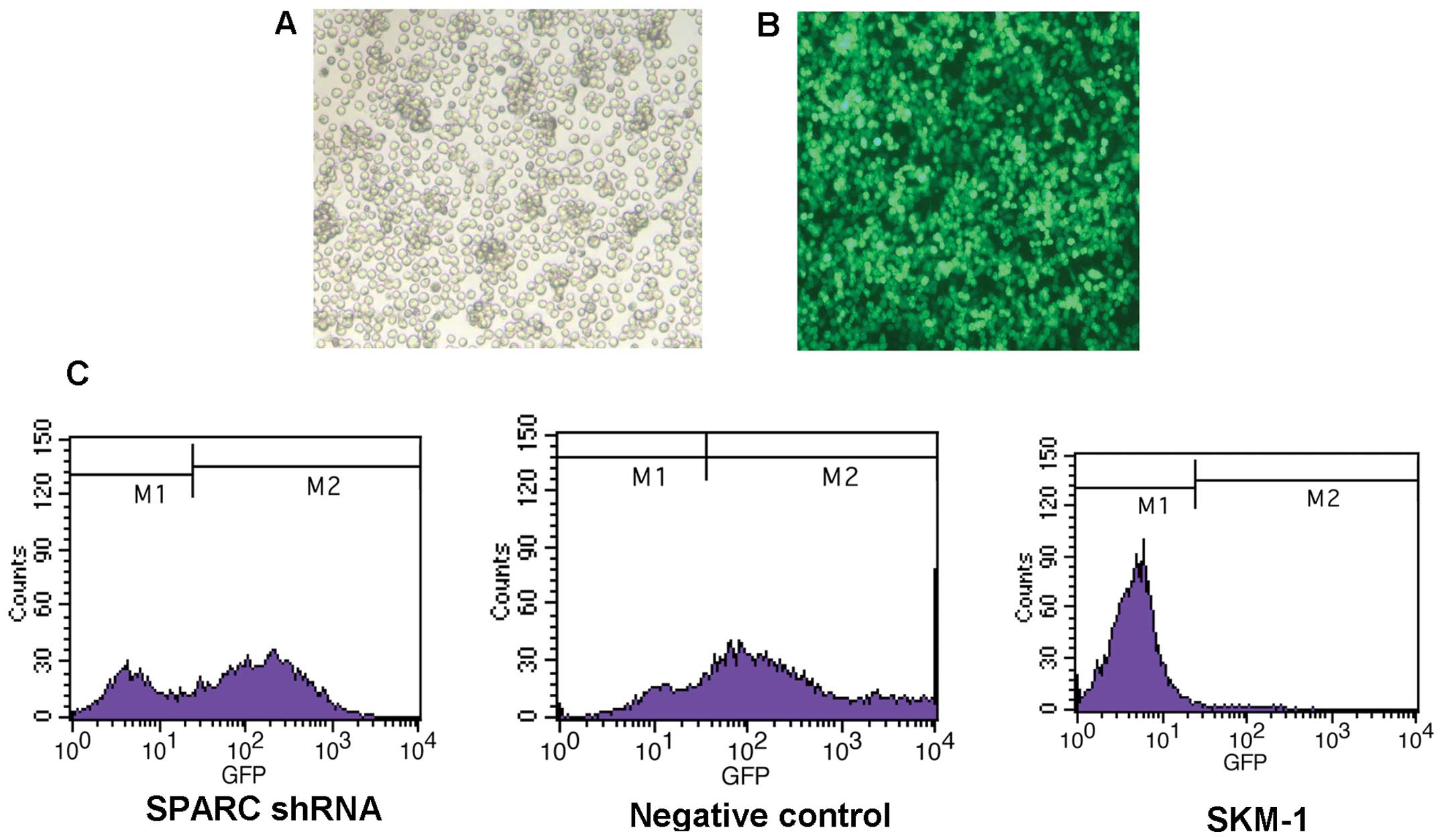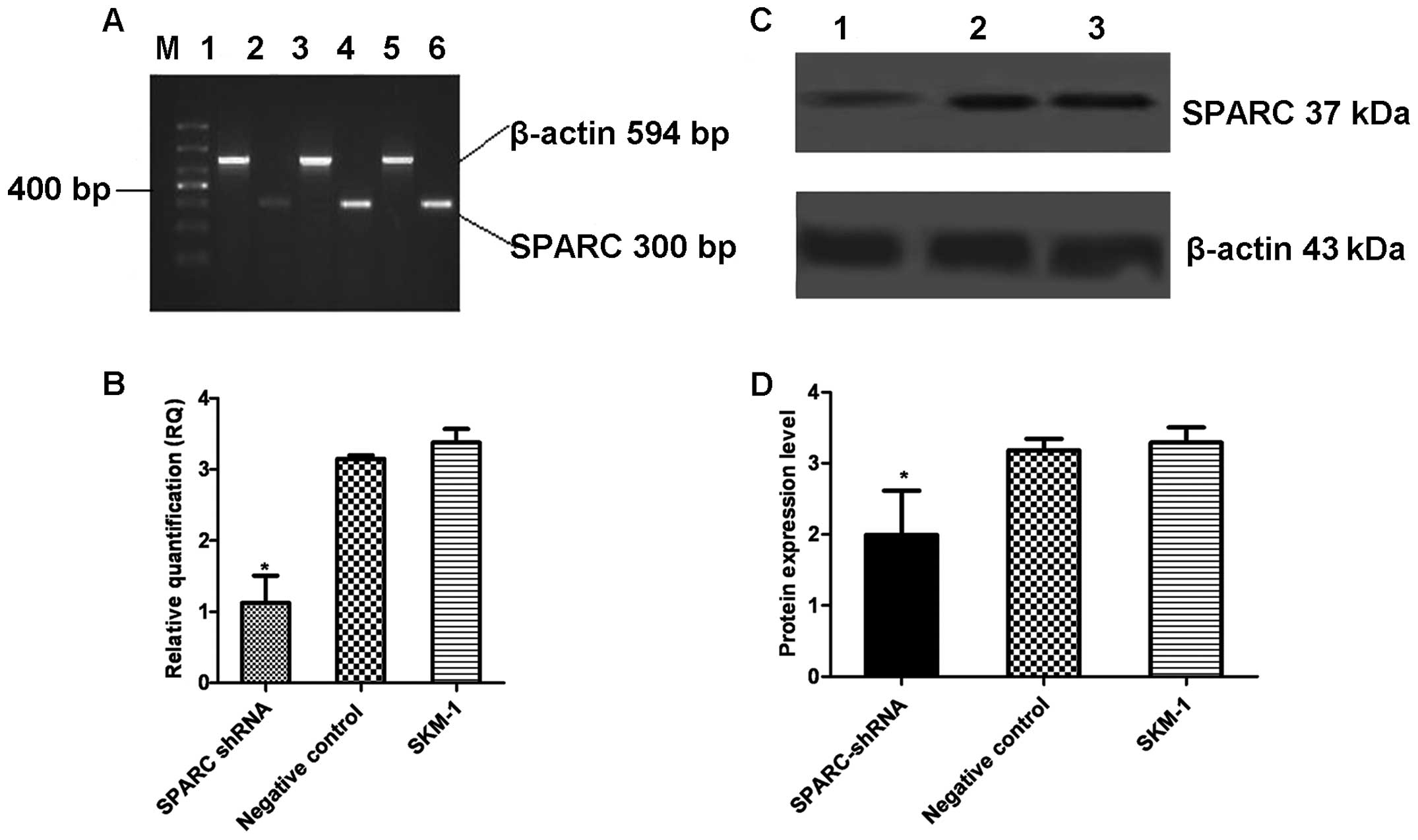|
1
|
Nimer SD: Myelodysplastic syndromes.
Blood. 111:4841–4851. 2008. View Article : Google Scholar : PubMed/NCBI
|
|
2
|
Ghariani I, Braham N, Hassine M and Kortas
M: Myelodysplastic syndrome classification. Ann Biol Clin.
71:139–144. 2013.(In French).
|
|
3
|
Jädersten M and Hellström-Lindberg E: New
clues to the molecular pathogenesis of myelodysplastic syndromes.
Exp Cell Res. 316:1390–1396. 2010.PubMed/NCBI
|
|
4
|
Davids MS and Steensma DP: The molecular
pathogenesis of myelodysplastic syndromes. Cancer Biol Ther.
10:309–319. 2010. View Article : Google Scholar : PubMed/NCBI
|
|
5
|
Giagounidis AA, Germing U, Wainscoat JS,
et al: The 5q- syndrome. Hematology. 9:271–277. 2004.
|
|
6
|
Swaminathan SS, Oh DJ, Kang MH, et al:
Secreted protein acidic and rich in cysteine (SPARC)-null mice
exhibit more uniform outflow. Invest Ophthalmol Vis Sci.
54:2035–2047. 2013. View Article : Google Scholar : PubMed/NCBI
|
|
7
|
Rotllant J, Liu D, Yan YL, et al: Sparc
(osteonectin) functions in morphogenesis of the pharyngeal skeleton
and inner ear. Matrix Biol. 27:561–572. 2008. View Article : Google Scholar : PubMed/NCBI
|
|
8
|
Hsiao YH, Lien HC, Hwa HL, et al: SPARC
(osteonectin) in breast tumors of different histologic types and
its role in the outcome of invasive ductal carcinoma. Breast J.
16:305–308. 2010. View Article : Google Scholar : PubMed/NCBI
|
|
9
|
Wiese AH, Auer J, Lassmann S, et al:
Identification of gene signatures for invasive colorectal tumor
cells. Cancer Detect Prev. 31:282–295. 2007. View Article : Google Scholar : PubMed/NCBI
|
|
10
|
Said N, Frierson HF Jr, Chernauskas D, et
al: The role of SPARC in the TRAMP model of prostate carcinogenesis
and progression. Oncogene. 28:3487–3498. 2009. View Article : Google Scholar : PubMed/NCBI
|
|
11
|
Isler SG, Ludwig CU, Chiquet-Ehrismann R,
et al: Evidence for transcriptional repression of SPARC-like 1, a
gene downregulated in human lung tumors. Int J Oncol. 25:1073–1079.
2004.PubMed/NCBI
|
|
12
|
Tohyama K: 5q- syndrome, MDS with isolated
del(5q). Nihon Rinsho. 2:362–366. 2012.(In Japanese).
|
|
13
|
Duong VH, Komrokji RS and List AF:
Efficacy and safety of lenalidomide in patients with
myelodysplastic syndrome with chromosome 5q deletion. Ther Adv
Hematol. 3:105–116. 2012. View Article : Google Scholar : PubMed/NCBI
|
|
14
|
Usmani SZ, Sawyer J, Rosenthal A, et al:
Risk factors for MDS and acute leukemia following total therapy 2
and 3 for multiple myeloma. Blood. 121:4753–4757. 2013. View Article : Google Scholar : PubMed/NCBI
|
|
15
|
Nakagawa T, Matozaki S, Murayama T, et al:
Establishment of a leukaemic cell line from a patient with
acquisition of chromosomal abnormalities during disease progression
in myelodysplastic syndrome. Br J Haematol. 85:469–476. 1993.
View Article : Google Scholar : PubMed/NCBI
|
|
16
|
Nakagawa T and Matozaki S: The SKM-1
leukemic cell line established from a patient with progression to
myelomonocytic leukemia in myelodysplastic syndrome (MDS) -
contribution to better understanding of MDS. Leuk Lymphoma.
17:335–339. 1995. View Article : Google Scholar : PubMed/NCBI
|
|
17
|
Kimura S, Kuramoto K, Homan J, et al:
Antiproliferative and antitumor effects of azacitidine against the
human myelodysplastic syndrome cell line SKM-1. Anticancer Res.
32:795–798. 2012.PubMed/NCBI
|
|
18
|
Barlow JL, Drynan LF, Hewett DR, et al: A
p53-dependent mechanism underlies macrocytic anemia in a mouse
model of human 5q- syndrome. Nat Med. 16:59–66. 2010. View Article : Google Scholar
|
|
19
|
Liebermann DA, Hoffman B and Vesely D: p53
induced growth arrest versus apoptosis and its modulation by
survival cytokines. Cell Cycle. 6:166–170. 2007. View Article : Google Scholar : PubMed/NCBI
|
|
20
|
Yiu GK, Chan WY, Ng SW, et al: SPARC
(secreted protein acidic and rich in cysteine) induces apoptosis in
ovarian cancer cells. Am J Pathol. 159:609–622. 2001. View Article : Google Scholar : PubMed/NCBI
|
|
21
|
Seno T, Harada H, Kohno S, et al:
Downregulation of SPARC expression inhibits cell migration and
invasion in malignant gliomas. Int J Oncol. 34:707–715. 2009.
View Article : Google Scholar : PubMed/NCBI
|
|
22
|
Yin J, Chen G, Liu Y, et al:
Downregulation of SPARC expression decreases gastric cancer
cellular invasion and survival. J Exp Clin Cancer Res. 29:592010.
View Article : Google Scholar : PubMed/NCBI
|
|
23
|
Horie K, Tsuchihara M and Nakatsura T:
Silencing of secreted protein acidic and rich in cysteine inhibits
the growth of human melanoma cells with G arrest induction. Cancer
Sci. 101:913–919. 2010. View Article : Google Scholar : PubMed/NCBI
|
|
24
|
Khalil H, Peltzer N, Walicki J, et al:
Caspase-3 protects stressed organs against cell death. Mol Cell
Biol. 32:4523–4533. 2012. View Article : Google Scholar : PubMed/NCBI
|
|
25
|
Brentnall M, Rodriguez-Menocal L, De
Guevara RL, et al: Caspase-9, caspase-3 and caspase-7 have distinct
roles during intrinsic apoptosis. BMC Cell Biol. 14:322013.
View Article : Google Scholar : PubMed/NCBI
|
|
26
|
Li Q, Wang Y, Wang Y, et al: Distinct
different sensitivity of Treg and Th17 cells to Fas-mediated
apoptosis signaling in patients with acute coronary syndrome. Int J
Clin Exp Pathol. 6:297–307. 2013.PubMed/NCBI
|
|
27
|
Wang L, Fidler C, Nadig N, et al:
Genome-wide analysis of copy number changes and loss of
heterozygosity in myelodysplastic syndrome with del(5q) using
high-density single nucleotide polymorphism arrays. Haematologica.
93:994–1000. 2008. View Article : Google Scholar
|



















